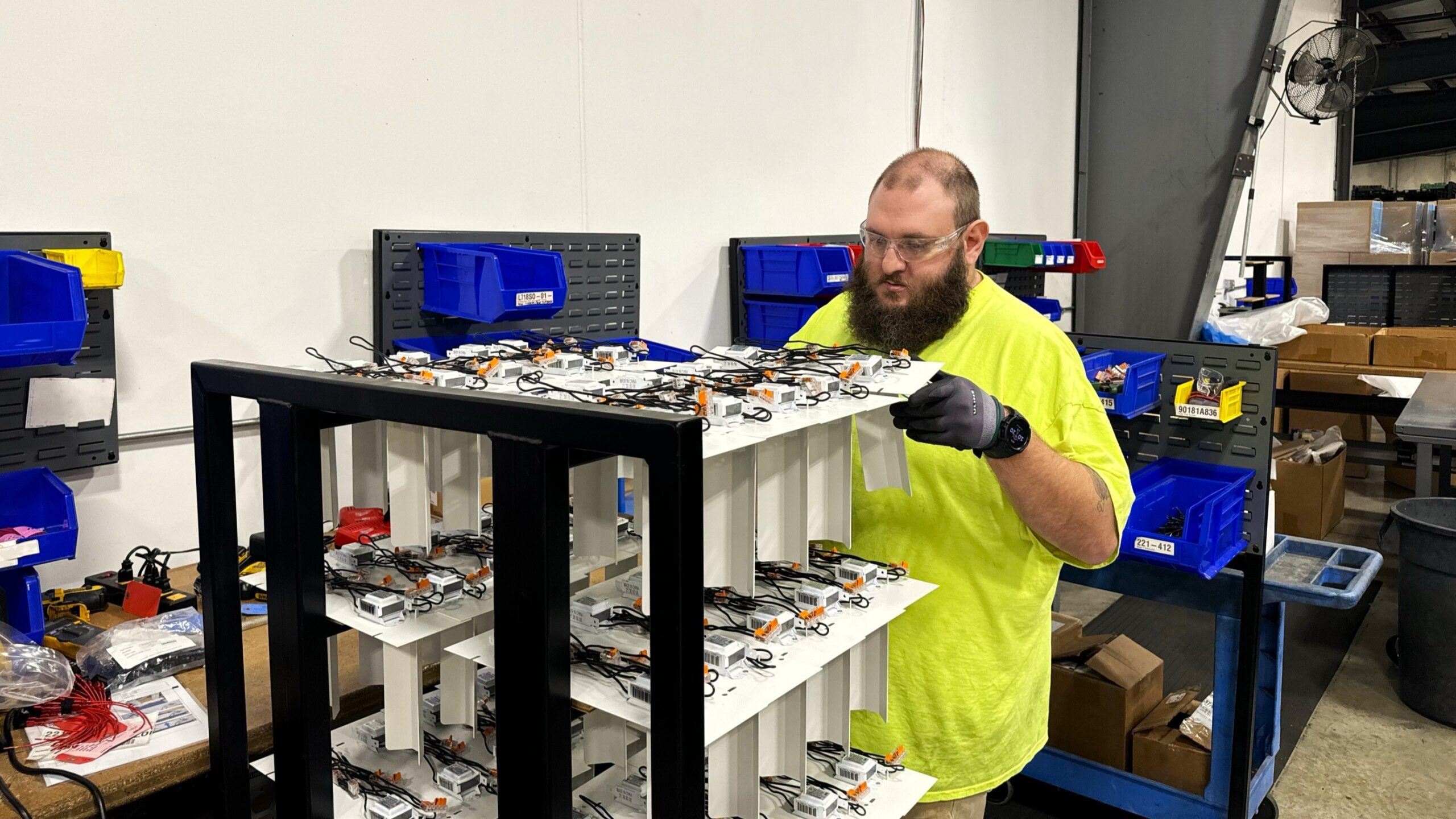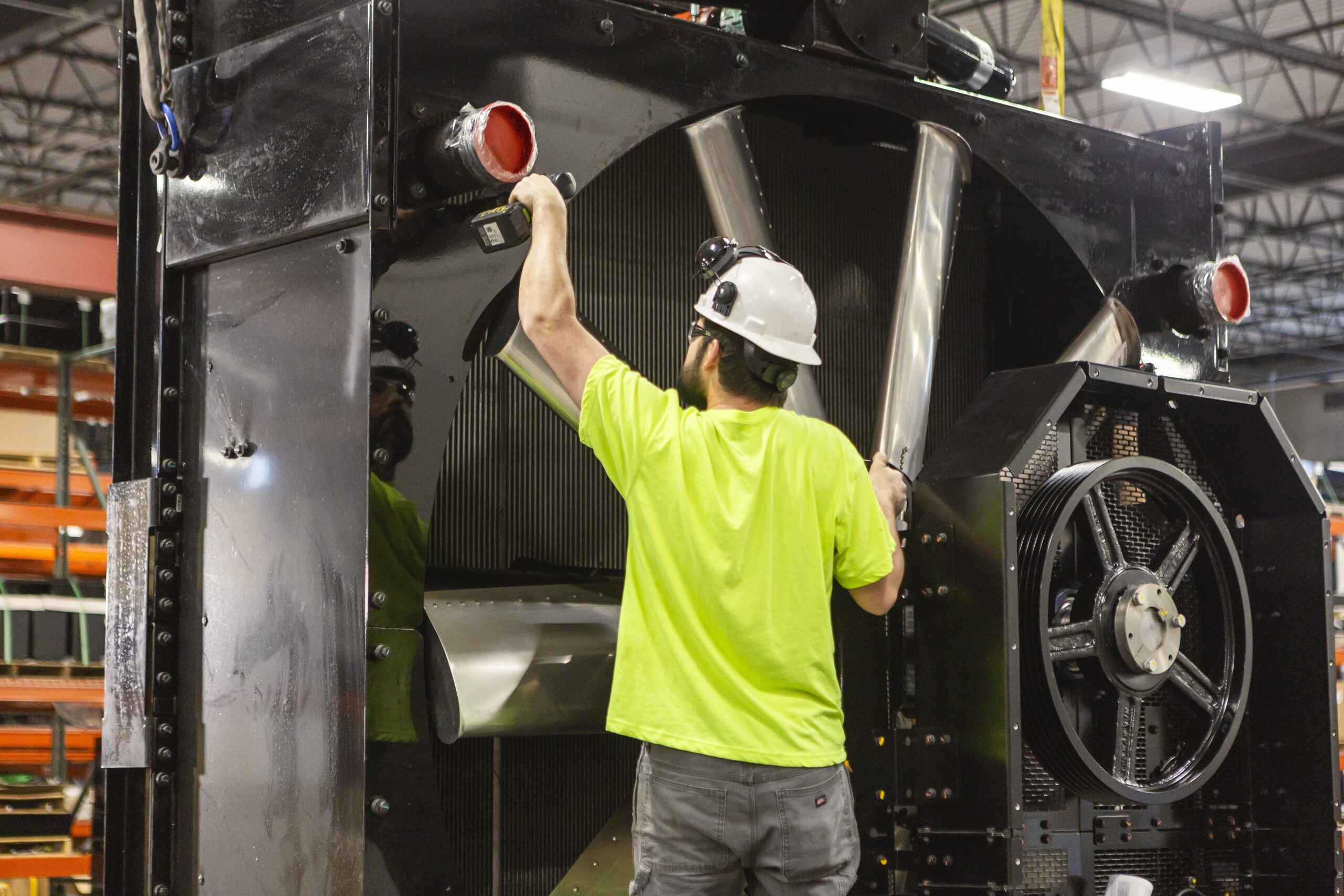The Growing Demand for Outsourcing Electro-Mechanical Assembly in Modern Manufacturing

Today’s OEMs are rapidly designing, developing, and building more connected, complex, and electric equipment. From backup power systems to electric vehicles, portable energy solutions, and other smart technologies, those same OEMs are leveraging the expertise of outsourced electro-mechanical assembly partners.
At World Class Industries (WCI), we help OEMs meet the growing demand for reliable, high-quality electro-mechanical assemblies and subassemblies that are delivered and ready to install, test, or ship.
What Is Electro-Mechanical Assembly?
Electro-mechanical assembly is the intersection where mechanical parts meet with electrical components to make something new—something powered. These assemblies switch power, detect motion, power a system, or control complex processes.
You’ll find electro-mechanical assemblies in nearly every industry. Examples include:
- Switch and sensor assemblies
- Power supply systems
- Wired cable harnesses
- Panel and transformer assemblies
- Power boxes and control panels
No matter the application, these products depend on precise builds and clean integration between mechanical and electrical systems.
Why Demand Is Growing
As larger segments of transportation, off-highway, industrial manufacturing, construction, and energy infrastructure continue to shift towards electrification, the need for high-quality electro-mechanical assembly grows exponentially.
At WCI, we’ve seen this firsthand. From assembling radiators for large gensets to supporting new product lines in energy storage and electrification, demand has never been stronger.
Benefits of Outsourcing Electro-Mechanical Assembly
✅ Strategic Benefits
1. Focus on Core Competencies
- Allows internal teams to concentrate on product design, marketing, and business development instead of complex assembly operations.
- Frees engineering and management resources for innovation and strategic initiatives.
2. Access to Specialized Expertise
- Contract manufacturers typically have deep experience in both electrical and mechanical integration, along with advanced testing and quality assurance protocols.
- They stay current with industry standards, compliance regulations, and certification requirements.
💸 Financial Benefits
3. Cost Efficiency
- Reduces overhead costs related to labor, training, floor space, and tooling.
- Lowers capital expenditures by avoiding significant upfront investments in equipment and infrastructure.
- Economies of scale: Outsourcing partners often buy components in bulk, passing on volume savings.
4. Predictable Pricing
- Outsourcing allows companies to shift from fixed to variable costs, improving cash flow management and budget predictability.
🏭 Operational Benefits
5. Scalability and Flexibility
- Easily ramp production up or down based on demand without the burden of hiring or layoffs.
- Ideal for startups and OEMs during new product introductions (NPIs), pilot runs, or rapid growth phases.
6. Reduced Lead Times
- Assemblers often have established supply chains and lean manufacturing processes that shorten production cycles.
- Just-in-time (JIT) delivery models can reduce inventory costs and improve responsiveness.
🔍 Quality and Risk Management
7. Improved Quality Assurance
- Many outsourcing firms have robust in-process testing, traceability, and quality control systems.
- Dedicated QA teams ensure high first-pass yield rates, reducing rework and field failures.
8. Reduced Risk
- Outsourcing mitigates the risk of production disruptions caused by labor shortages, material delays, or compliance issues.
- It distributes risk across the supply chain and provides redundancy if a partner has multiple facilities.
🌍 Global Reach and Supply Chain Leverage
9. Geographic Diversification
- Partners may have global operations, enabling nearshoring or offshoring depending on logistics, tariffs, or geopolitical factors.
- Helps companies navigate supply chain bottlenecks or reduce time-to-market in international markets.
10. Regulatory Compliance
- Assemblers often handle documentation, testing, and certification for regulated industries (e.g., UL, CE, RoHS).
- Streamlines market entry for products requiring regional compliance standards.
Let’s Build the Future Together
If you’re looking for a trusted partner who understands how to scale, create custom solutions, and deliver high-quality electro-mechanical assembly every time, World Class Industries is ready to help.
Reach out today to start the conversation with our team.
